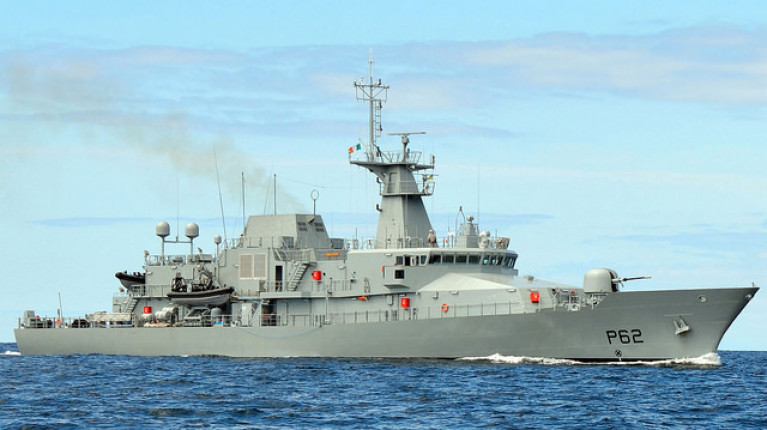Displaying items by tag: Security Threats
Naval Service Top Officer Flags Need to Protect Sub-Sea Cables
A top Naval Service officer has said Ireland needs to develop the ability to monitor threats to sub-sea cables passing through Irish-controlled waters given the “tremendous” impact of any interference with them.
Captain Brian Fitzgerald, who retires at the end of March as second in command of the Irish Naval Service, warned that if sub-sea cables are cut, business and the internet will not grind to a halt but “snap to a halt”.
He said he was concerned about illegal fishing vessels, many of which were capable of extracting “€5-6m worth of fish” in one trip, and that he had “some concerns” about Ireland’s ability to enforce the law despite the work of the navy.
Capt Fitzgerald said that, in addition, Brexit had created enormous challenges for the Naval Service in that it had to police a 1,315km long sea border with Britain, which he said had created a “volumetric explosion of administration” regarding the cross-border movement of fishing vessels.
He said Ireland had responsibility for policing the Exclusive Economic Zone, which stretches 200 nautical miles west and south west off our coast, noting the Irish Examiner (here) added also his reference to the Irish Sea which has some of busiest sub-sea cables on the planet.
In an urgent need to address gaps in maritime and air security, and the threat posed by cyber attacks, they feature prominently in submissions made to the country's first national security strategy.
A total of 60 submissions have been made in a public consultation launched by the newly-established National Security Analysis Centre.
The NSAC, based within the Department of the Taoiseach, is drawing up the State's first-ever National Security Strategy.
While the submissions have not yet been published by the department a number are available on the websites of bodies that have made them
In its detailed submission, the Association of Retired Commissioned Officers (ARCO) said the threats to Ireland's national security range from energy security, espionage and extremism to hybrid warfare, major pandemics, nuclear contamination and terrorism.
The submission, authored by Brigadier-General Paul Pakenham (Retd), said that ISIS is “likely to reemerge in the short to medium term”.
It said the concept of military neutrality was “flawed and outdated” and that cyber-enabled attacks and hybrid warfare “do not respect Ireland's military neutrality posture".
ARCO said a “substantial increase” in investment in defence capabilities is required, pointing out that Ireland has the lowest defence spend in the EU, at 0.3% of GDP (average 1.3%).
It said the trans American-European sea and air lanes are in “close proximity” to Ireland and that Ireland's significant reliance on sea lanes presents a potential risk.
The Irish Maritime Forum, an independent professional body, also looked at on sea lanes of communication.
It wants an increased focus, by boosting the Naval Service, to protect Ireland's maritime domain, which is the largest in northwest Europe, with 92% of Ireland's area being underwater.
“We are a small trading nation living on an island and 99% (by volume) of everything we import or export is transported by sea," it said.
“The sea and air traffic between northern Europe and the USA passes close to our shores and through or above waters over which we have jurisdiction or for which we have responsibility.”
Much more from BreakingNews.ie here.






























































